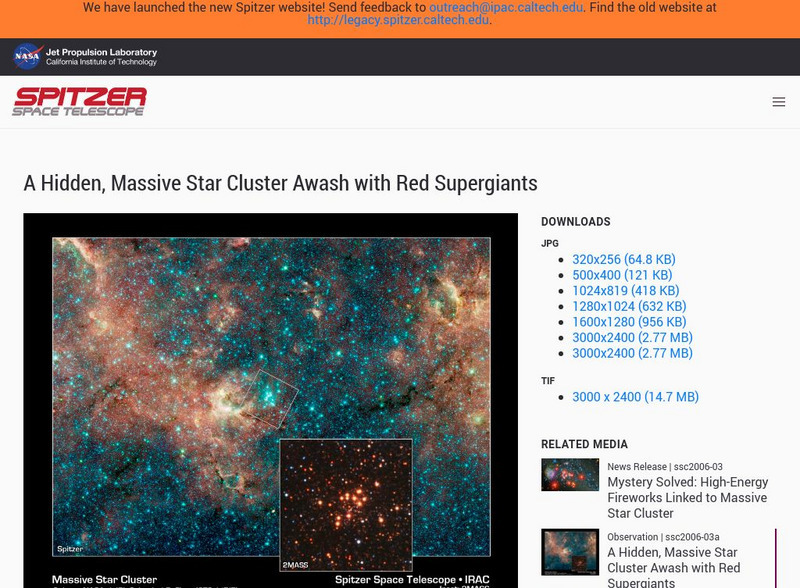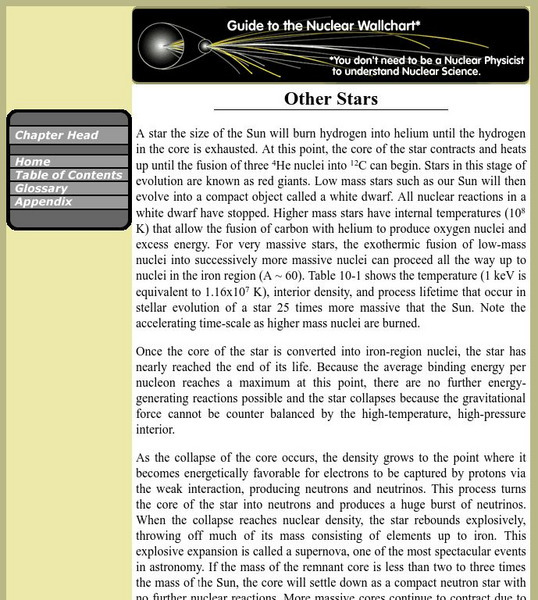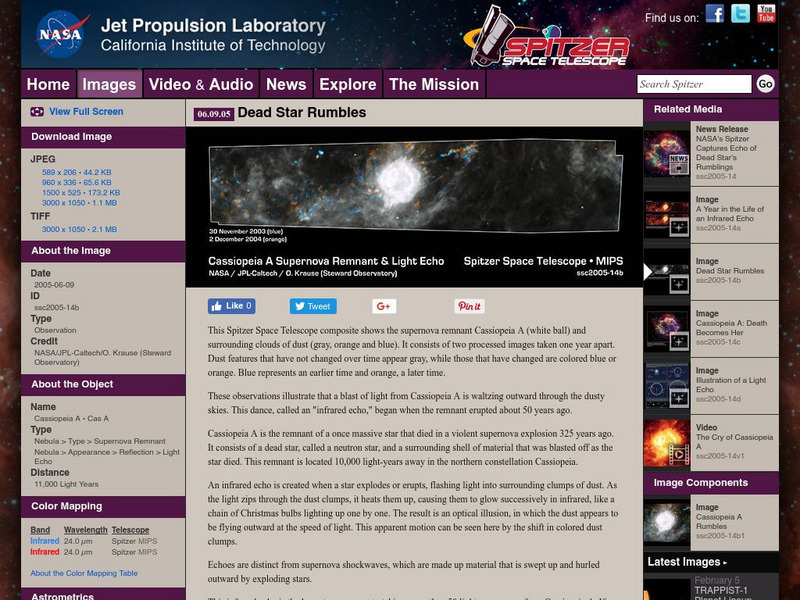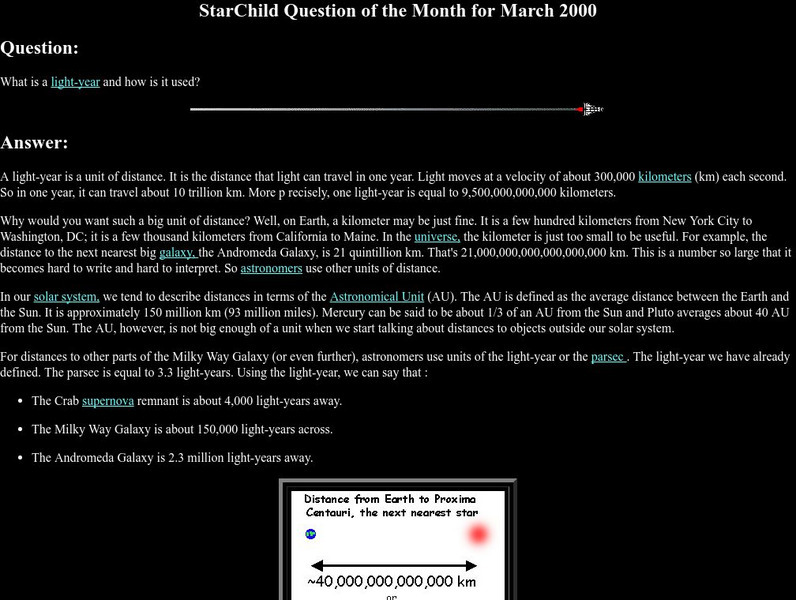CK-12 Foundation
Ck 12: Earth Science: Life Cycles of Stars
[Free Registration/Login may be required to access all resource tools.] Examines the formation of a star and the main sequence of the star's life cycle.
Other
Cosmic Wonders: Nebulae
Various different types of nebulae can be explored on this site. View and learn about this stellar phenomena and how they contribute to the growth of the solar system.
NASA
Nasa: Wmap: Fate of the Universe
A general look at the expansion of the universe and the Big Bang theory.
BBC
Bbc: Gcse Bitesize: The Life Cycle of a Star
This lesson focuses on the formation and life cycle of stars. Stars form when enough dust and gas clump together because of gravitational forces. Nuclear reactions release energy to keep the star hot. Some stars grow larger over time....
Space Telescope Science Institute
Hubble Site: A Decade of Discovery
Take a look back at a decade of discovery concerning the Hubble from the HubbleSite. Site contains links to a portfolio of pictures, a quicktime video as well as the vault of discovery.
CK-12 Foundation
Ck 12: Earth Science: Life Cycle and Classification of Stars Study Guide
[Free Registration/Login may be required to access all resource tools.] This study guide summarizes key points about types of stars and he life cycle of a star. Includes a few questions to check for understanding.
NASA
Astronomical Society of the Pacific: Telescope Treasure Hunt
This hands-on astronomy activity lets learners hunt for different objects in the night sky that contribute to stellar and planetary formation, using a Treasure List. They will learn how stars and their planets form and will find objects...
NASA
Nasa Space Place: What Is a Nebula?
Learn about nebula and how stars form inside, and see some exciting images.
California Institute of Technology
Spitzer Science Center: Massive Star Cluster
Under the heading, "A Hidden, Massive Star Cluster Awash with Red Supergiants" this site examines specific details of an infrared image displaying 14 massive stars close to supernova. A detailed text analysis of the picture is also...
Lawrence Berkeley National Laboratory
Berkeley Lab: Other Stars
Describes other stars besides the sun in our galaxy and the major stages in the evolution of a massive star.
California Institute of Technology
Spitzer Science Center: Dead Star Rumbles
This image, titled "Dead Star Rumbles" features a medium-sized image of the remnants of Cassiopeia A and its surrounding infrared echo. The text under the image details various specifics about the picture.
NASA
Nasa Star Child: What Is a Light Year and How Is It Used?
This is a definition and example of how distance is measured in astronomy, such as the distance between our earth and the stars.
NASA
Nasa: Imagine the Universe: Welcome to the World of Multiwavelength Astronomy!
This Imagine the Universe site provides an introduction into the multiwavelength universe and astronomy. Site provides graphics, links to a quiz, facts on this topic as well as teacher resources.
Other popular searches
- Star Life Cycle Supernova
- Supernova Remnants
- The Supernova
- Supernova Explosions
- Supernova and Stars
- Supernova Activities
- Supernova Geometry
- The Supernova Geometry










